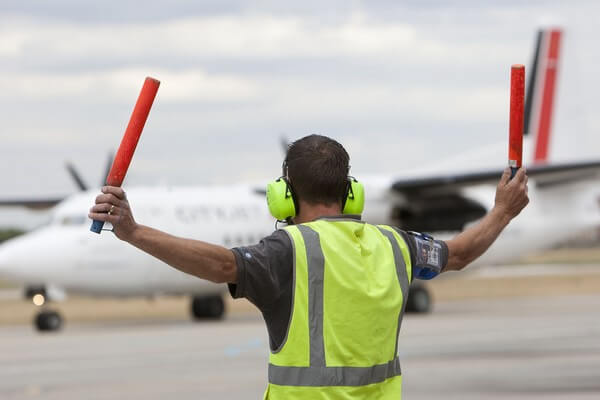Guest opinion commentary by Thomas Musongole
Like many readers, I was very surprised to recently read that one of the biggest service providers at the country’s largest airport is currently operating illegally without a contract. How is it possible that millions of dollars are being paid from the public treasury to an underperforming company with no agreement in place?
It must just be force of habit for the Tanzania Airport Authority (TAA), which for years has thrown hundreds of millions of dollars at Swissport Tanzania, who by all accounts are the ones responsible for the terrible service, delayed flights, lost and damaged bags, and mistreatment of local employees.
How did we arrive to this point? Swissport Tanzania has held one of two contracts for ground handling services at Julius Nyerere International Airport (JNIA) since 2001. Previously, their monopolistic position was simply renewed again and again without any public tender.
That may be about to change however thanks to great government oversight efforts. Last fall, the Tanzania Airport Authority (TAA) announced its first-ever open tender process in November for the new contract – meaning that Swissport is going to have to provide a competitive and transparent offer instead of just taking the business.
On one hand, this is good news – greater transparency helps build public confidence in the TAA’s handling of projects that are critical to Tanzania’s economy, particularly the crucial tourism sector.
On the other, the announcement raises an alarming question: if this is the first open tender offered, what happened over the past 19 years? How has the TAA assessed their options when past contracts have expired before now?
Reports that the TAA renewed contracts to work with providers without public scrutiny or input casts doubt on their commitment to accountability and transparency. Promising an open tender is an important first step, but a promise cannot truly mean anything until it is fulfilled.
Tanzanians have good reason to be concerned. Swissport Tanzania’s track record as a partner is less than stellar – increased labor costs, hidden fees, poor working conditions and the lack of a clear accountability structure has allowed Swissport to control what is effectively a monopoly position.
This behavior is not uncommon. As part of an effort to crack down on these abuses of public trust, President John Magufuli recently announced probes into several construction contracts at the airport that may have been overpriced. Across Africa, ground handling provider contracts often progress without public input, leading to delays and unexplained increases in costs.
We cannot afford to risk the future of the nation’s largest and busiest airport on a subpar provider. JNIA is an essential infrastructure asset that is critical to competing with Kenya’s Jomo Kenyatta International Airport as the gateway to East Africa for international travel.
More than 21 airlines operate through JNIA, including elite global carriers such as KLM, Qatar Airways, Emirates, Swiss International and Turkish Airways, among others. According to the TAA, aircraft movements increased by almost 50 percent from 2016 to 2017. Planned construction will boost capacity from 2 million to 9 million annual passengers.
In addition to the influx of international travelers, growing cargo traffic at JNAI is hugely impactful on the flow of imports and exports, which, in turn, affects Tanzania’s commerce and economy as well as regional and global supply chains.
As these critical areas of the nation’s economy grow, Tanzania’s needs and the needs of JMIA are changing. In addition to maintaining the highest quality of service, the TAA must be able to demonstrate a high standard of transparency, especially as President Magufuli works to show the world that Tanzania is capable of tackling corruption.
Unfortunately, Swissport Tanzania has been allowed to exercise undue control over its relationship with the TAA in the past. They have gotten used to a cozy monopoly without answering to the public about their pricing, their operating practices or the quality of their services.
The open tender process is a sign that the TAA understands that the status quo needs to change. However, details of the process have yet to be revealed. Further, rumors have circulated about adding a third provider, despite the failure of this experiment in Lagos.
In this area, we should look to examples of successful airport hubs across the continent such as Johannesburg, Cairo, Addis Abada, and Morroco for best practices. These hubs avoid bidding wars by relying on two providers and keep costs in check using transparent public tender processes.
The TAA is at a crossroads. They have taken the first step, and now, the public must ensure the TAA keeps the promises it has made and demand a fully transparent process.


